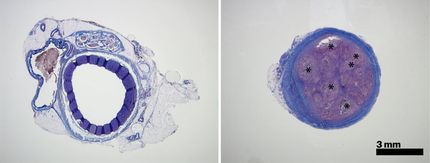Snake venom could make surgery safer for patients on blood thinners
Advertisement
Preventing blood clots with drugs such as heparin has become a common practice for fighting some heart and lung conditions, and for certain surgeries. But patients who take them also need their blood to clot to heal incisions made during operations. Researchers are developing a new way to tackle this problem -- by pairing snake venom with nanofibers.
Currently, doctors can take several approaches to reduce bleeding in surgical patients on heparin and other blood thinners, including applying pressure, sutures, foams and adhesives. But these options can come with potentially serious risks. Some can introduce toxic byproducts into a patient, spark an allergic reaction or cause tissue to die. To come up with a better alternative, Jeffrey D. Hartgerink and colleagues turned to an enzyme from snake venom that causes blood to coagulate even if it contains heparin. Called batroxobin, the enzyme is already in clinical use for another condition. But using it to control bleeding is problematic because it dissolves quickly and moves away from where it's originally introduced -- a problem when trying to heal surgical incisions.
To override batroxobin's tendency to disperse, the researchers paired it with "sticky" nanofibers to make the enzyme stay put. The therapy, which was tested on rats treated with heparin, promoted localized blood clotting at a wound site within 20 seconds. The researchers say with further testing, the approach could eventually help make surgery safer for human patients taking heparin.
Original publication
Other news from the department science

Get the life science industry in your inbox
By submitting this form you agree that LUMITOS AG will send you the newsletter(s) selected above by email. Your data will not be passed on to third parties. Your data will be stored and processed in accordance with our data protection regulations. LUMITOS may contact you by email for the purpose of advertising or market and opinion surveys. You can revoke your consent at any time without giving reasons to LUMITOS AG, Ernst-Augustin-Str. 2, 12489 Berlin, Germany or by e-mail at revoke@lumitos.com with effect for the future. In addition, each email contains a link to unsubscribe from the corresponding newsletter.


























































